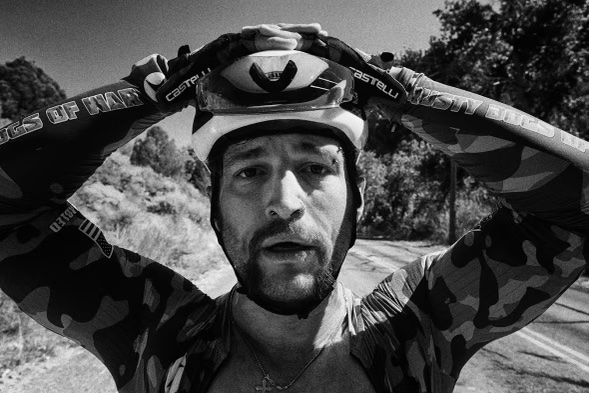Caleb Sprayberry’s journey into ultra-endurance cycling is a testament to resilience, determination, and the power of transformation. After being medically retired from the Army in 2016, Caleb faced significant personal challenges, including struggles with addiction. However, it was through these challenges that he discovered the life-changing world of cycling—a passion that would not only help him stay sober but also propel him to become a formidable competitor in the grueling sport of ultra-endurance cycling.
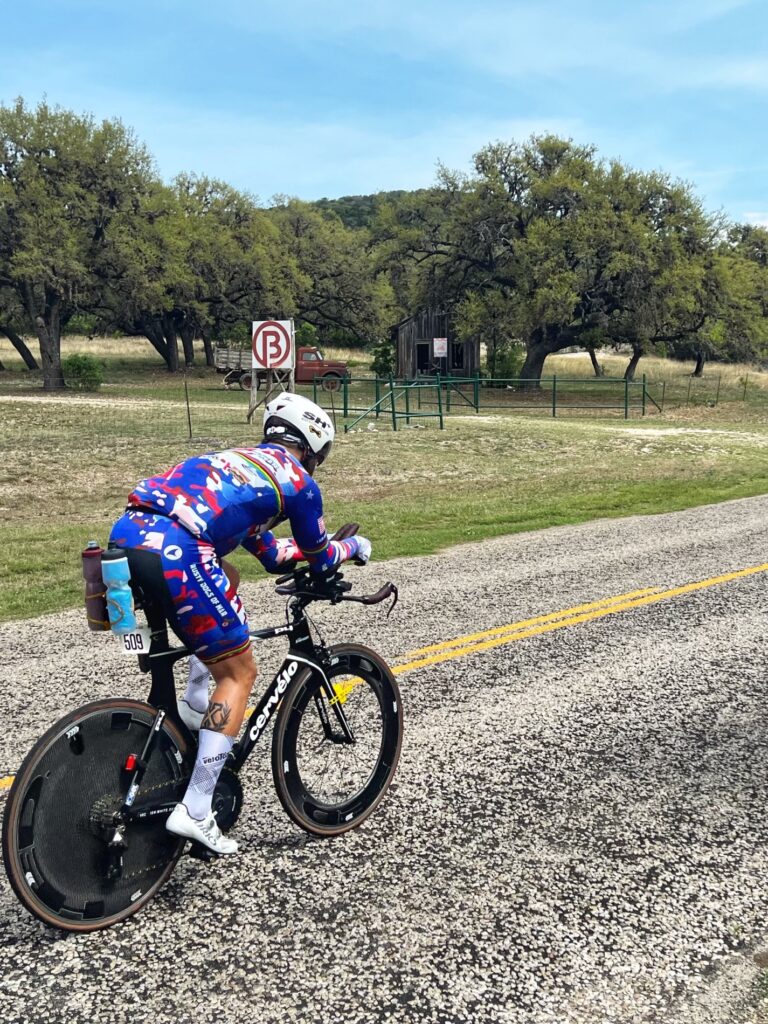
“I’m a recovering drug addict and alcoholic,” Caleb candidly shares. “Cycling became my way to stay sober. It started when I first rode 15 miles around my apartment in Alaska, and I immediately wanted to take on the hardest challenge possible—Race Across America (RAAM).” His initial ambitions may have seemed lofty, but they were rooted in his innate competitive spirit. While his now ex-wife encouraged him to start with smaller goals, Caleb’s drive only grew stronger, leading him to join a cycling club in Las Vegas after relocating to Pahrump, Nevada. It was here that he was introduced to the California Triple Crown series, a set of 200-mile rides that fueled his determination to one day conquer RAAM.
Caleb’s competitive spirit was put to the test in 2022 when he participated in a two-man relay race from California to Colorado, covering 500 miles in just two and a half days. This experience pushed him to explore even longer distances, leading him to enter the Race Across the West (RAW) in 2023—a solo challenge he won in the men’s under-50 category. “It was tough mentally, more so than physically,” Caleb recalls, describing the brutal conditions across Arizona’s scorching heat. Despite the challenges, he rode for 68 hours with virtually no sleep, emerging victorious in one of the most grueling and rewarding experiences of his life.
However, the journey to the finish line in Durango, Colorado, was not without its surreal moments. Caleb recounts how the lack of sleep led to vivid hallucinations as he rode through the night. “I would see people who weren’t there and hands coming out behind power poles,” he says. Yet, his crew chief kept him grounded, offering reassurance that they were indeed on course. The anticlimactic end of the race, with only a small medal ceremony, stood in stark contrast to the grand send-off in Oceanside, California. Still, Caleb cherished the accomplishment, even as he dealt with the inevitable post-race blues—a common experience for endurance athletes after such monumental efforts.
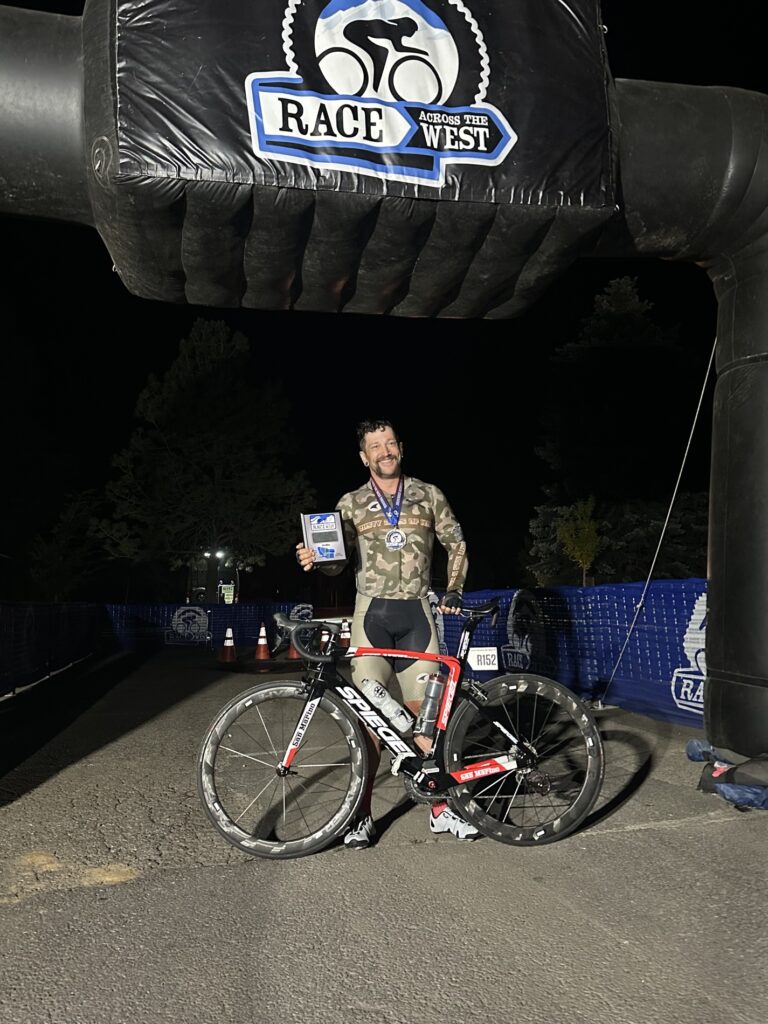
Caleb’s first ultra-endurance event in 2022, the 24-hour World Time Trial Championships, was another pivotal moment in his career. Partnering with another disabled veteran, also named Caleb, he rode 423 miles in 24 hours, pushing his physical and mental limits. “The biggest thing I learned is that your body can go a lot farther than your brain thinks you can. It’s all about mental toughness,” Caleb explains. This lesson has become a guiding principle in his approach to ultra-endurance sports.
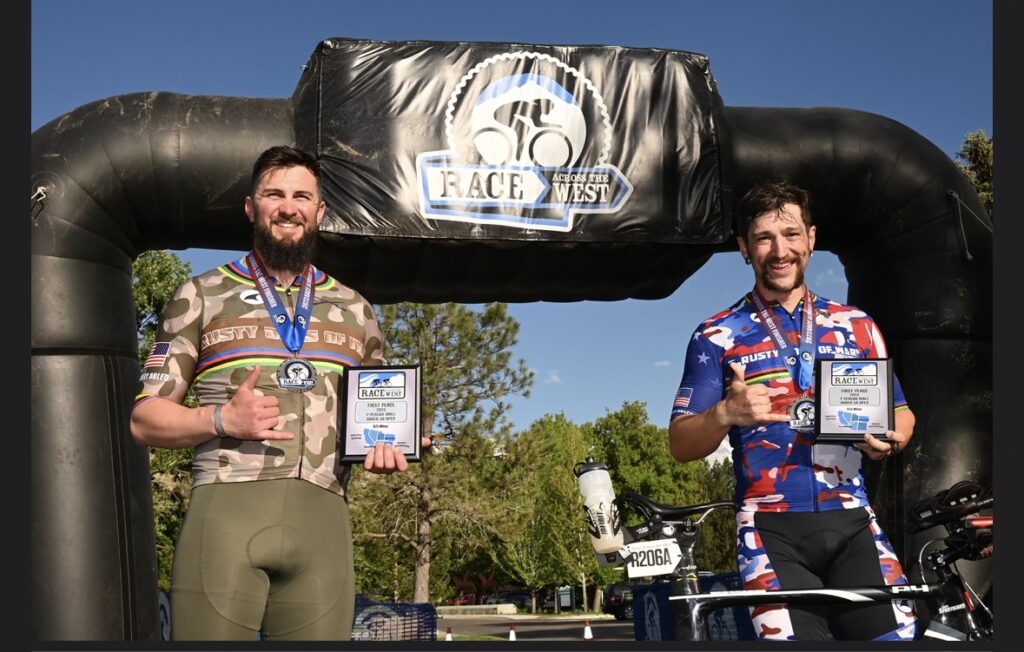
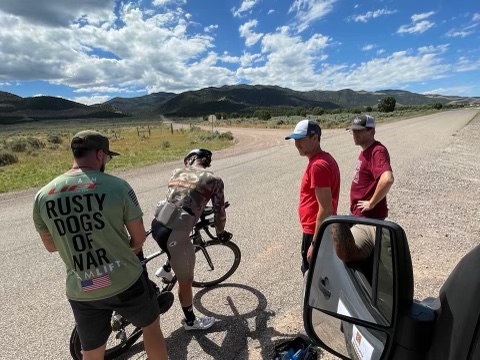

Training for these events is no small feat. Caleb rides between 22 and 27 hours a week, adhering to a strict regimen designed by his coach. “It’s a pyramid structure, building up to a peak week before the event,” he explains. His dedication to cycling is evident in his near-daily rides, a discipline he’s maintained for over five years. “It’s definitely an addiction,” Caleb admits, though he’s proud to have replaced his former addictions with this healthier, more constructive pursuit.
Despite the challenges and moments of doubt, Caleb’s resolve remains unshakable. He recalls one particularly tough race in Utah where hypothermic conditions almost forced him to quit. “I remember thinking, ‘Why did I do this? I’m never doing this again,’” he says. But with the support of his crew and the fear of failure driving him, Caleb pushed through, refusing to let the elements defeat him. “I’ve never quit anything before, and I wasn’t about to start,” he asserts.
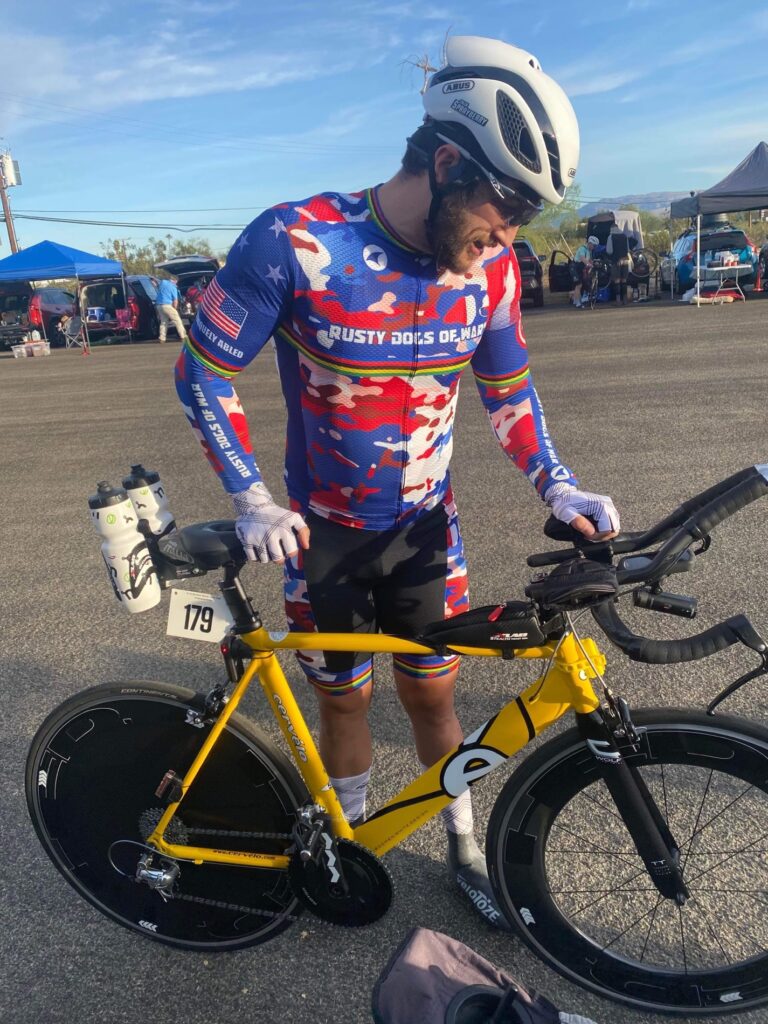
Looking to the future, Caleb has his sights set on even greater challenges, including the North American Ultra Distance National Championship and eventually, the world championship. “Winning the stars and stripes would be amazing, but the ultimate goal is the rainbow bands,” he says, referring to the coveted world champion stripes that would signify his place at the top of the sport.
Beyond the races and accolades, ultra-endurance cycling has profoundly shaped Caleb as a person. “It’s taught me persistence and consistency,” he reflects. “There’s always another goal to chase, and you just have to stick with it.” This mindset is what drives him, even as he navigates the complexities of being a disabled veteran and the financial challenges of pursuing such a demanding sport.
As Caleb continues to push his limits, he remains a source of inspiration, not just for fellow veterans but for anyone who has faced adversity and found a way to rise above it. “Chase that dream,” he advises. “You’re never too old to accomplish your goals.” At nearly 40 years old, Caleb is living proof that with the right mindset, anything is possible.


